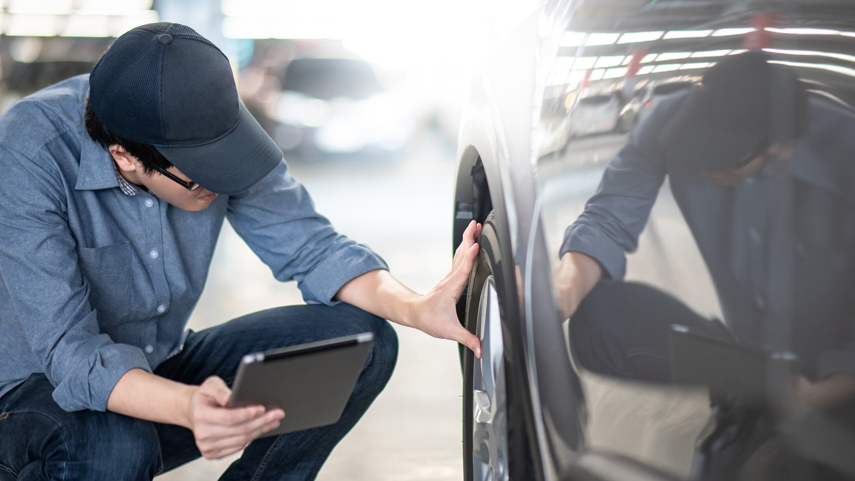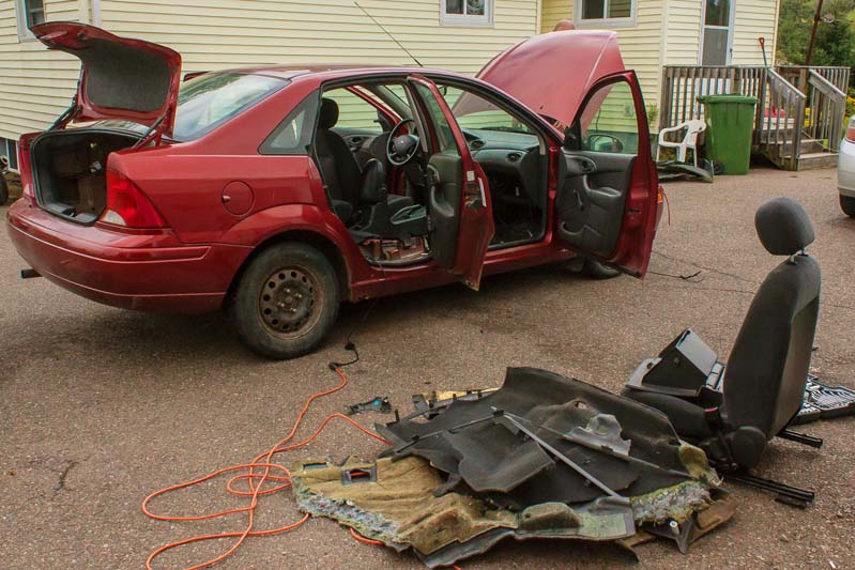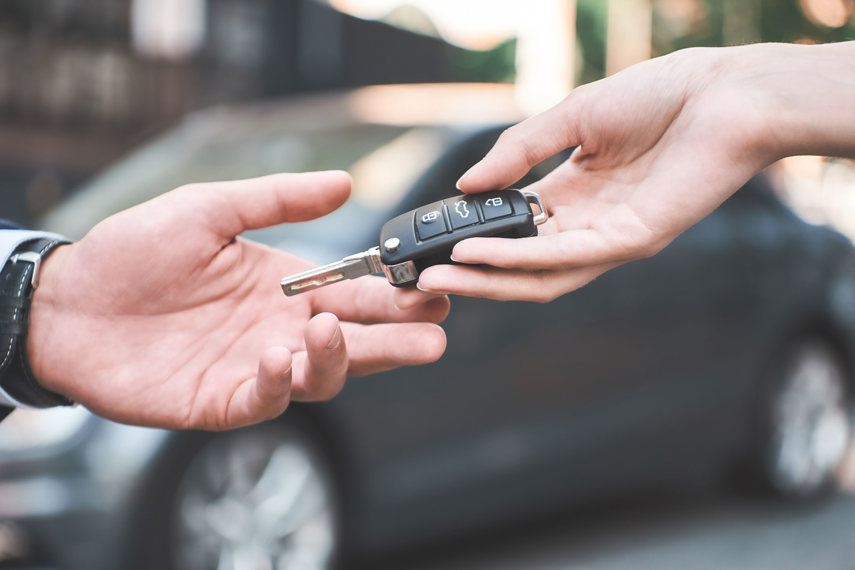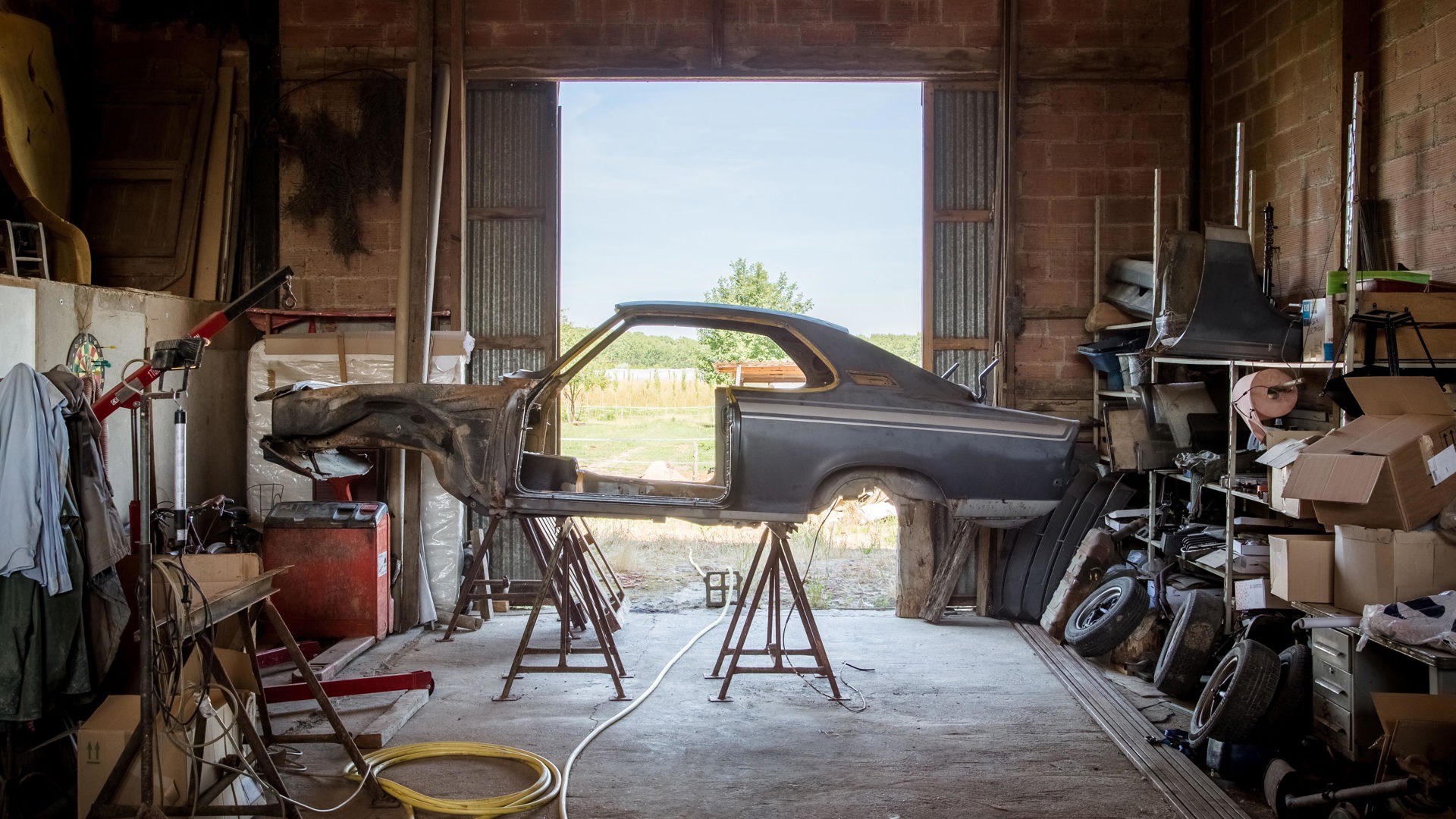While some prefer to purchase or lease a new vehicle every few years, others live by the “drive it into the ground” philosophy. If you identify with the latter, you may wonder what to do once you drive your vehicle into the ground and it’s no longer worth fixing.
Your first instinct might be to call a tow truck and hope the local scrapyard will take it off your hands without charging you for the tow. However, according to Steve Fletcher, managing director of the Automotive Recyclers of Canada (ARC), that would be a mistake.
“Every vehicle at the end of life has a value,” Fletcher explains. Even though a vehicle may be worthless to you, it’s still worth something to another purchaser, a dealership, a scrapyard, or even a charity.
Fix It & Sell It

Your best return on investment might be to sell your vehicle privately to someone who will continue to love and drive it. In that case, you’ll need to fix it and ensure it’s roadworthy. Once you know how much that will cost, you can compare the cost of repairs with what you might be able to get when you sell it and compare the two prices to see if this is your best option.
You can get a pretty good idea of what your vehicle might be worth by comparing it with similar models listed on the AutoTrader marketplace or by using the What’s My Car Worth tool. Use the AutoTrader search engine to look for the same make, model, and model year vehicle with a similar odometer reading and in similar condition. Once you get a ballpark figure, you can subtract the cost of repairs to see if the remaining dollar figure is worth the time and money you’ll have to invest in fixing your ride and selling it yourself.
Trade It In
If you’d rather not put another penny into repairs and you’re planning on replacing your old vehicle with something new, you could trade in your clunker when buying a new car. Depending on the age and condition of your vehicle, the dealer may decide to fix it and sell it as a used car, Fletcher explains.
“Because the used car market is so tight, and prices are so high, everybody is looking for inventory,” he adds.
However, if you have a really old car in really bad condition, a new car dealer may not want it. However, Fletcher says, a used car dealer might still be interested.
Jim Hamilton, interim manager and legal services director for the Used Car Dealers Association of Ontario (UCDA), says that used car dealers may not necessarily offer you top dollar for your clunker, but they will help you get rid of it.
“You’re going to get a minimum amount of money for such a vehicle,” Hamilton says. “Most dealers wouldn’t be interested in simply buying your vehicle, but they would be interested in taking it if you’re buying a vehicle from them in exchange. And really, we’re doing the customer a favour by properly dealing with the scrap vehicle and getting it into the hands of a legitimate recycler.”
In fact, the value of the parts rather than the value of the vehicle as a whole may determine how much the dealer is willing to offer you for your clunker. “It depends on the vehicle and what the dealer thinks the scrapyard might be willing to pay because there are valuable components in these vehicles,” Hamilton explains.
Scrap It

That brings us to your next option – sell your clunker to a scrapyard. Here again, keep in mind that even a completely useless vehicle with a blown engine still has value, Fletcher says.
“Our members are businesses that acquire end-of-life vehicles for their parts,” he explains, “and then, the materials that are left over, which are mostly metals, are a secondary revenue stream for them.”
Every vehicle, he adds, comes with a valuable catalytic converter, rare earth metals and the like. “The value of the metals offsets the cost of towing and proper processing of the vehicle,” he adds, which is why scrapyards are willing to pick up your vehicle for free.
How Much is My Clunker Worth?
If you’d like to know how much your vehicle is worth to a scrapyard, Fletcher recommends going to RetireYourRide.ca, clicking on “I’m Ready to Retire My Ride,” and filling out the form. The information about your vehicle will be sent to auto recyclers in your area (the program is available across Canada), and those who are interested in your vehicle will offer a bid. The highest bid will then be sent to you, and you can choose to accept it or not.
If you accept the bid, the recycler will be given your contact information, and once they reach out to you, the two of you can decide when you would like your vehicle picked up and your cheque dropped off. If you don’t accept the bid, you are not obliged to sell your vehicle, and you can withdraw the offer to sell your car. At that point, at least you’ll know what your car is worth.
Donate Your Clunker

Finally, if you prefer to get a tax receipt rather than a cash payment for your clunker, Fletcher recommends visiting another Canada-wide program: CarHeaven.ca. Here, you can choose to donate the value of your vehicle to the charity of your choice via a dropdown menu that appears after you fill out the online forms.
The process is very similar to the one on the RetireYourRide.ca website, and in fact, the same auto recyclers will be bidding for your vehicle. The only difference is that when someone comes out to pick up your vehicle, instead of bringing a cheque, they will bring you the paperwork for your tax deduction.
The old adage, “One man’s garbage is another man’s treasure,” certainly applies to end-of-life vehicles. They may not be worth much to you, but you still have plenty of options and many ways to squeeze out the last bit of value from your investment before saying your final farewell.

